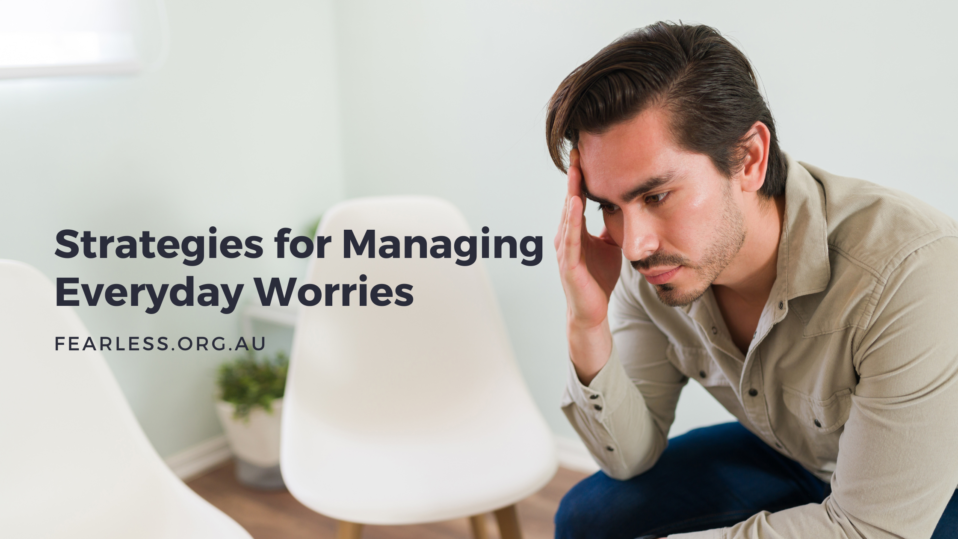In our fast-paced lives, it’s easy to get caught up in the whirlwind of worries. From looming deadlines to personal concerns, everyday worries can start to feel overwhelming. But fear not – there are effective strategies to keep those worries at bay and maintain your mental well-being.
In this blog, we’ll delve into some tried-and-true methods that can help you manage everyday worries and cultivate a sense of peace in your daily life.
1. Practice Mindfulness
Mindfulness is the art of being present in the moment. By focusing your attention on the here and now, you can prevent worries from spiraling into anxious thoughts. Try mindfulness exercises like deep breathing, meditation, or simply observing your surroundings. These techniques can ground you and offer a fresh perspective on your concerns.
2. Prioritise Self-Care
Taking care of yourself is crucial in managing worries. Engage in activities that bring you joy, whether it’s spending time outdoors, indulging in hobbies, or pampering yourself. A well-nourished body and mind are more resilient in the face of worries.
3. Establish a Worry Journal
Sometimes, putting your worries on paper can help you process them. Create a worry journal where you jot down your concerns and your thoughts about them. This can provide clarity, highlight patterns, and even lead to potential solutions.
4. Set Boundaries with Technology
Constant connectivity can contribute to heightened worries. Set boundaries by designating tech-free times, especially before bedtime. This break from screens can create a mental space free from the influx of information and worries.
5. Practice Positive Self-Talk
Your inner dialogue can greatly impact how you handle worries. Challenge negative thoughts with positive affirmations. Instead of catastrophizing, remind yourself of your strengths and past successes in overcoming challenges.
6. Engage in Physical Activity
Exercise isn’t just good for your body – it’s great for your mind too. Physical activity releases endorphins, which are natural mood elevators. Regular exercise can help reduce stress and worries by promoting a sense of well-being.
7. Connect with Others
Don’t underestimate the power of social support. Reach out to friends, family, or support groups when worries start to pile up. Sharing your concerns can provide relief and remind you that you’re not alone in facing challenges.
8. Focus on What You Can Control
Worries often stem from feeling out of control. Instead of fixating on things beyond your control, channel your energy towards actionable steps you can take. This shift in perspective can empower you to make a positive change.
Managing everyday worries is a skill that can significantly enhance your mental well-being. By practicing mindfulness, prioritising self-care, and using techniques like worry journals and positive self-talk, you can regain a sense of control over your thoughts and emotions. Remember, these strategies are tools in your mental health toolkit – use them to build resilience and embrace a more peaceful, worry-free life.
About FearLess
FearLess is a charity that works with people living with the consequences of post traumatic stress (often referred to as PTSD). We also help family members in any way affected by it. Our community members come from all walks of life including those living with PTSD and their families or people who want to do their bit to make the lives of people living with post traumatic stress more enjoyable and fulfilling. Our work complements the activities of other community-based organisations and government agencies that provide services to people with post traumatic stress.
This website has been established to provide information about PTSD to the Australian and New Zealand community. The website’s content is not intended to be a substitute for professional medical advice, diagnosis or treatment. You should seek the advice of an appropriately qualified healthcare professional before making decisions about your own circumstances. You should not disregard professional medical advice, or delay seeking it, because of any information contained on this website.



Post a comment